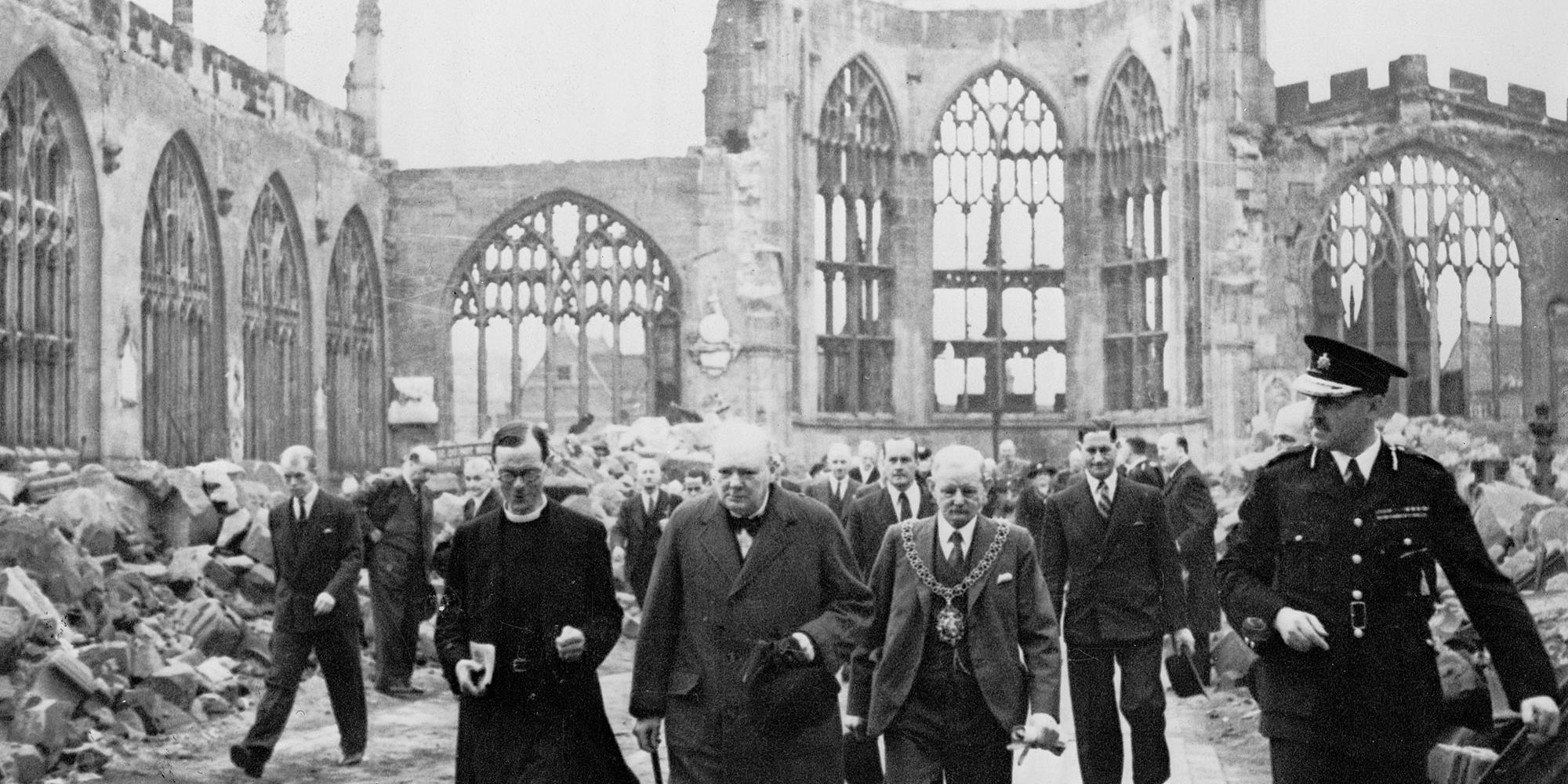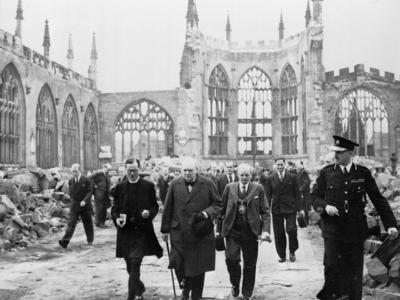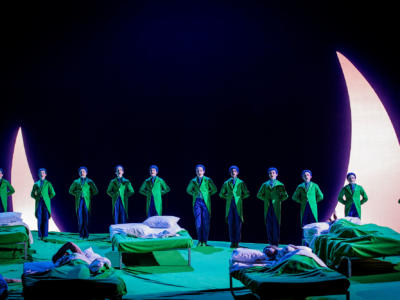An introduction to War Requiem
Here’s everything you need to know about ENO’s production of Britten’s War Requiem.
It’s a choral work by Benjamin Britten
First performed in May 1962, Benjamin Britten’s powerful Requiem was commissioned for the reopening of the newly-built Coventry Cathedral. The piece, combines English poetry with Latin Requiem Mass, and is sung by soloists and two large choruses. Britten himself recognised this would be one of his most important works. He dedicated War Requiem to four friends he had lost in (or because of) the war.
Video
It was commissioned to mark the reopening of Coventry cathedral
On 14 November 1940, the medieval Coventry Cathedral was left devastated by bombs dropped by the Luftwaffe (German air force). Soon after, the decision was made to rebuild the cathedral, although not as a sign of defiance, but rather for hope and faith. Twenty-two years later, the newly –built cathedral, erected next to the ruins of the original, was the setting for the first ever performance of Britten’s powerful War Requiem.
The piece combines lines of Wilfred Owen’s anti-war poetry with texts from Latin Requiem Mass
Wilfred Owen was an English poet and soldier whose poignant anti-war poetry helped him become one of the leading poets of the First World War. Unlike the more patriotic poets of the time, Owen’s frank words portrayed the horror that he experienced fighting for his country. Britten chose nine of Owen’s poems to be interspersed with texts from the Latin mass for the dead.
Britten was a life-long pacifist
The roots of Britten’s pacifism are thought to stem back to his childhood, when, aged 2, his home town came under fire from the German navy. Throughout his life, Britten would have many more encounters that fuelled his anti-war beliefs (notably, the time spent with his mentor Frank Bridge, whose political views clearly made an impression with the young composer). Upon his return to England (from the USA) in 1942, Britten registered as a conscientious objector and was granted full exemption from the armed forces. Eight years after War Requiem, the composer even went on to write Owen Wingrave, an opera about a man who refuses to be a soldier and gets haunted by his military family.

Winston Churchill walking through the ruined nave of Coventry Cathedral, England, after it was severely damaged in the Coventry Blitz of 14–15th November 1940
Our production will be staged to mark the centenary of the end of the first world war
2018 marks the 100th year since the first world war ended. Described as the ‘war to end all wars’ the First World War began in 1914 and lasted for four years. Measures put in place to prevent another war from happening failed, resulting in the Second World War, the war in which the Cathedral was destroyed.
Director Daniel Kramer’s staging will feature over 120 singers
An 80-strong chorus has been put together for this production. Their powerful voices will be accompanied by a children’s choir of 40 and three soloists. Two of the soloists, a tenor and a baritone, sing Owen’s poems, accompanied by a small orchestra of just 12 instruments. The soprano soloist, alongside the large chorus sing the Requiem mass, with help from the full orchestra. The children’s voices can also be heard in the piece, depicting innocence and purity.
Video




